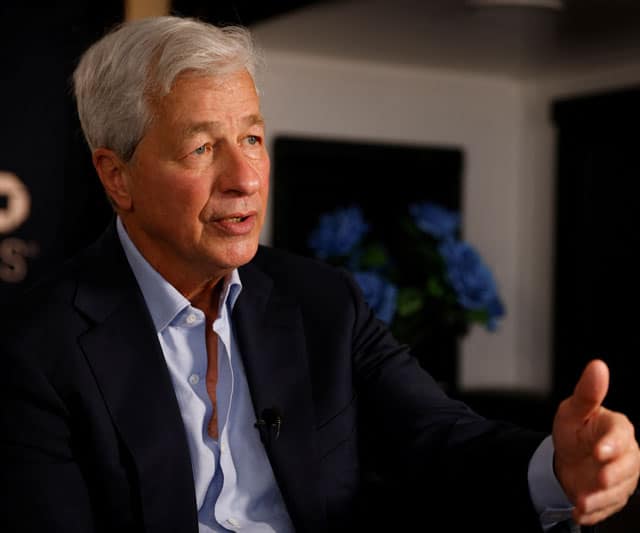JPMorgan Chase CEO Jamie Dimon blasted stricter capital rules proposed by U.S. regulators, telling investors that they could prompt lenders to pull back and stymie economic growth.
The proposal to require banks to set aside more capital to guard against risk was “hugely disappointing” and involved a “lack of transparency” from regulators about the rationale, Dimon said at a conference in New York on Sept. 11.
“I wouldn’t be a big buyer of a bank,” the chief of the largest bank in the U.S. added, drawing laughter from the audience. “I’d be no better than equal weight.”
JPMorgan bought First Republic earlier this year in a government-backed deal.
Dimon questioned what the regulators were trying to accomplish with the rules. “All I want is fairness, transparency, openness,” he said.
The Federal Reserve, Federal Deposit Insurance Corp and the Office of the Comptroller of the Currency declined to comment.
Global Economy
Dimon said he believed the Chinese market was no longer as lucrative as it was previously. He also said that his takeaway from a trip he made to China in May for the first time in four years was “highly cautious.”
“In terms of our own business, the risk-reward (from China), which was very good, has now become okay. The risk is bad,” he said adding that the bank is cautious about managing its risk.
China’s economy grew at a frail pace in the second quarter with gross domestic product expanding by just 0.8% from the previous quarter.
Dimon earlier warned about uncertainty in the Chinese economy hurting investor confidence and also suggested that the U.S. and China need “real engagement” on security and trade issues.
In the U.S., even though the consumer and the banking industry remains strong, Dimon said that he was more cautious than others on the economic environment.
“I just think people make a mistake to look at real-time numbers and not look at the future. And the future has quantitative tightening. We’ve been spending money like drunken sailors around the world, this war in Ukraine is still going on,” he said, adding that to assume that the environment would be booming for years was a huge mistake.
Quantitative tightening refers to a reversal of the massive central bank asset purchases undertaken to support bond markets as the coronavirus hit in 2020 and during the global financial crisis 15 years ago.
Even though the economy looks buoyant currently, the impact of withdrawing of fiscal stimulus measures could only be clearer in the next 12 to 18 months, he warned.
This article was provided by Reuters.







